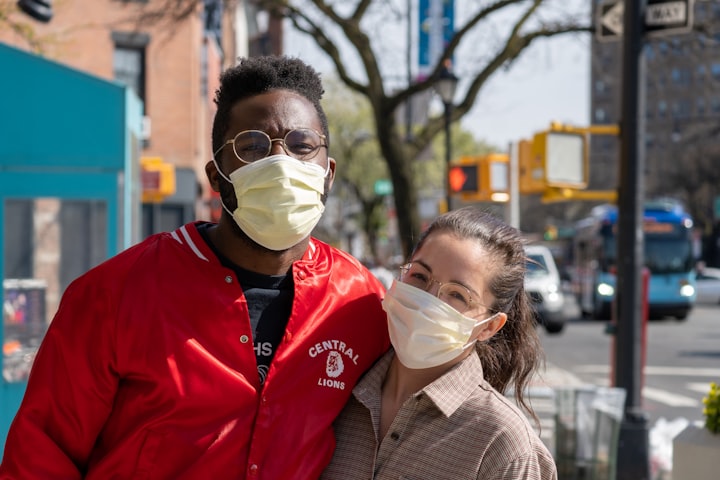Scientists say some tests may be able to identify the markers of prolonged COVID symptoms in the future
Scientists say some tests may be able to identify the markers of prolonged COVID symptoms in the future

Scientists say some tests may be able to identify the markers of prolonged COVID symptoms in the future
If someone is experiencing long COVID, A published in Nature used blood tests to biological markers that are associated with collection of mysterious conditions reported by millions of Americans.
The life of COVID-19 long-haulers For these people, surviving the coronavirus, was the just beginning of fighting long-term symptoms and the road to recovery.
Researchers used machine learning to help analyze immune markers and hormone levels in 273 adult participants at Mount Sinai and Yale University and compared those with and without long COVID symptoms at least one year after having COVID-19.
Introduction
Long COVID (sometimes referred to as ‘post-acute sequela of COVID-19’) is a multisystemic condition comprising often severe symptoms that follow a severe acute respiratory syndrome coronavirus 2 (SARS-CoV-2) infection. At least 65 million individuals around the world have long COVID, based on a conservative estimated incidence of 10% of infected people and well over 651 million documented COVID-19 cases worldwide1; the number is likely much higher due to many undocumented cases. The incidence is estimated at 10–30% of non-hospitalized cases, 50–70% of hospitalized cases2,3 and 10–12% of vaccinated cases4,5. Long COVID is associated with all ages and acute phase disease securities, with the highest percentage of diagnoses between the ages of 36 and 50 years, and most long COVID cases are in non-hospitalized patients with a mild acute illness6, as this population represents the majority of overall COVID-19 cases. There are many research challenges, as outlined in this Review, and many open questions, particularly relating to pathophysiology, effective treatments and risk factors.
Hundreds of biomedical findings have been documented, with many patients experiencing dozens of symptoms across multiple organ systems7 (Fig. 1). Long COVID encompasses multiple adverse outcomes, with common new-onset conditions including cardiovascular, thrombotic and cerebrovascular disease8, type 2 diabetes9, myalgic encephalomyelitis/chronic fatigue syndrome (ME/CFS)10,11 and dysautonomia, especially postural orthostatic tachycardia syndrome (POTS)12 (Fig. 2). Symptoms can last for years13, and particularly in cases of new-onset ME/CFS and expected to be lifelong14. With significant proportions of individuals with long COVID unable to return to work7, the scale of newly disabled individuals is contributing to labor shortages15. There are currently no validated effective treatments.
These levels are identified through blood tests, but this is not a blood test that specifically tests for long COVID.
I think one of the most important findings of the paper is that it validates the symptoms people have by finding biological differences between them and healthy controls,” Morris said.
“It is a truly remarkable study,” Dr. Shari Barnett Bosnian, M.D., M.Sc., a COVID-19 researcher who was not involved in the study and assistant professor of the division of pulmonary, critical care and sleep medicine at New York University Lang one Health System, told ABC News. Brosnahan does note that “it's a limited analysis that they did, and I think that there's still more work to be done.
This study was done on relatively few people, so researchers say more studies are needed to better understand the significance of these results more broadly. Still, they say this study helps scientists get one step closer to knowing more about long covid. If there are biological markers that are specific to long COVID, it could help confirm a diagnosis or help target treatments.
This research joins a large movement to gain more understanding of long COVID conditions and efforts to provide services to those affected, including efforts by the Biden administration, which recently announced a new Office of Long Covid Research.
Long covid is a term used to characterize signs, symptoms, and conditions that persist for at least 4 weeks after getting infected with COVID-19 that may last months to years, according to the working definition developed by the U.S. Department of Health and Human Services.
These symptoms can range in severity and impact multiple organ systems in the body. Common complaints include fatigue, brain fog, sleep problems, difficulty breathing or shortness of breath, dizziness upon standing, and stomach issues, according to the CDC.
In July 2021, long covid was recognized as a condition that could qualify as a disability under the Americans with Disabilities Act if it “substantially limits major life activities.” Research that may help doctors make a diagnosis could be crucial for those most severely impacted to receive these necessary services.
About the Creator
Nirob Hasda
I am a Professional content writer.I have a 2 years old experience for content writing.






Comments
There are no comments for this story
Be the first to respond and start the conversation.